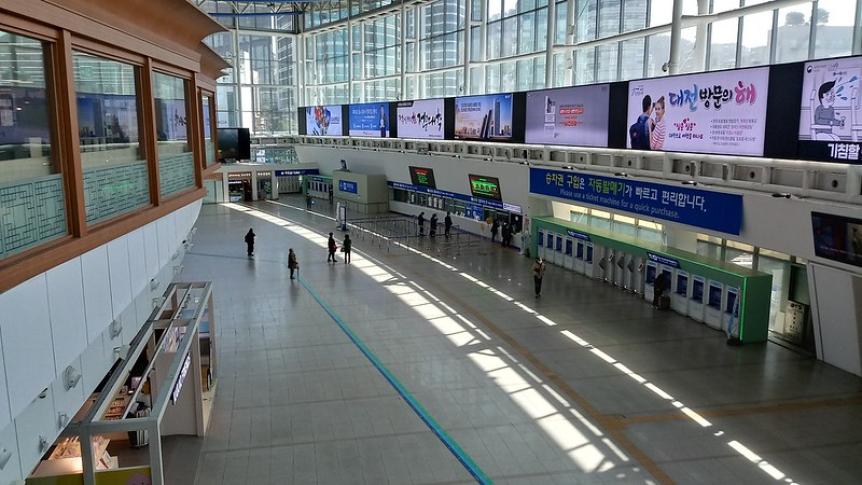
This statement was released by APC member organisation Jinbonet and a network of other human rights organisations to express their concern that the South Korean government is trying to establish a more wide-reaching surveillance and control system in the name of preventing the spread of COVID-19.
On May 25, Central Disaster and Safety Countermeasures Headquarters (CDSCHQ) announced that it plans to introduce "electronic entry register system (QR code)" for facilities deemed to be high-risk of spreading COVID-19, including entertainment facilities. It means it would be electronically recorded who entered what facilities. Currently, facilities such as karaoke bars and clubs have recorded a list of visitors and their identities by hand. But, the record was often inaccurate, which was the reason for the introduction of new electronic entry register system. Korean government said that the system will keep separate identification and facility access records to protect privacy, but the matter is that the state can track individuals whenever it needs them. On the contrary, people will be placed in a state where the state can monitor them at any time. We are concerned about that the government is trying to establish a more complete surveillance and control system in the name of epidemic prevention.
Those who are required to leave entry records at the facility are neither patient nor suspect of infectious diseases. While the purpose of the system is to respond to possible collective infections, if every single step of individuals is collected mandatorily for just a contingency without concrete grounds, that is the way to enter the surveillance state. The right to privacy and informational self-determination is a fundamental right stipulated in the Constitution of Korea and international norms. The Secretary-General of the UN also warned in the UN Policy Brief on COVID-19 and Human RIghts on April 23, that “what is justified during an emergency now may become normalized once the crisis has passed”. Also, he said that “all measures must incorporate meaningful data protection safeguards, be lawful, necessary, and proportionate, time-bound and justified by legitimate public health objectives”. Although fundamental rights may be constrained to some extent for public health purposes, it should be the minimum necessary and proportionate for the purpose. But keeping everyone’s access records to facilities goes far beyond the principle of proportionality. If the epidemic prevention in S. Korea is based on the premise of restriction of fundamental rights, and control and punishment of people, it is tantamount to achieving results at the sacrifice of democracy and human rights.
Moreover, there is no legal basis for mandatory storage of facility access records, let alone the electronic entry register system. This is why the government is citing user’s “consent” as the basis for collecting access records. True consent, however, should be freely given without any detriment for the data subject even when she or he don’t consent. Consent means nothing if we are not allowed to enter a facility without consent. People only have "freedom of choice" not to leave facility access records electronically.
S. Korea was able to succeed in epidemic prevention because it conducted active inspections based on tracking of whereabouts of confirmed patient. However, it should not be forgotten that behind the scenes are an electronic monitoring system that allows every move of us to be tracked in less than 10 minutes at any time, including real-name mobile phone registration system, routinized use of credit card and real-name transportation cards, and CCTVs installed everywhere. Successful epidemic prevention is important, but it is also necessary to check whether our society keeps important values and principles during the response to COVID-19. However, it is worrisome that Korean government may be intoxicated with praise for its successful handling of COVID-19 and is preoccupied with strengthening control measures for more complete epidemic prevention. We can see this in the introduction of electronic wrist band despite the controversy over human rights violations, the electronic entry register system which seek to implement an off-line real-name system beyond a online one, and the measures to prohibit people from using public transportation without wearing masks.
In the era of COVID-19, is S. Korea’s "new normal" a digital surveillance state? Immediately withdraw the plan to introduce electronic entry register system!
The statement was signed by the following members of the Network of Human Rights Organizations in Response to COVID-19:
Korean Lawyers for Public Interest and Human Rights(KLPH), GongGam Human Rights Law Foundation, Gwang-Ju Human Rights Center 'Hwal JJak', Dasan Human Right Center, MINBYUN - Lawyers for a Democratic Society, Protesting against Poverty & Discrimination Solidarity for Human Right, Korean people’s solidarity against poverty, Seoul Human Rights Film Festival, PINKS : SOLIDARITY FOR SEXUALLY MINOR CULTURES & HUMAN RIGHTS, Center for Health and Social Change, People’s Coalition for Media Reform, Human Rights Movement Space 'Hwal', Activists group for Human Rights ‘BARAM’, SARANGBANG Group For Human Rights, HUMAN RIGHTS FOUNDATION SARAM, Women with Disabilities Empathy, Solidarity Against Disability Discrimination, Solidarity for Peace & Human Rights, DONGCHEON FOUNDATION, Korean Progressive Network 'Jinbonet', Korean Gay Men's Human Rights Group 'Chingusai', Solidarity for LGBT Human Rights of Korea, HIV/AIDS Activists Network Korea.